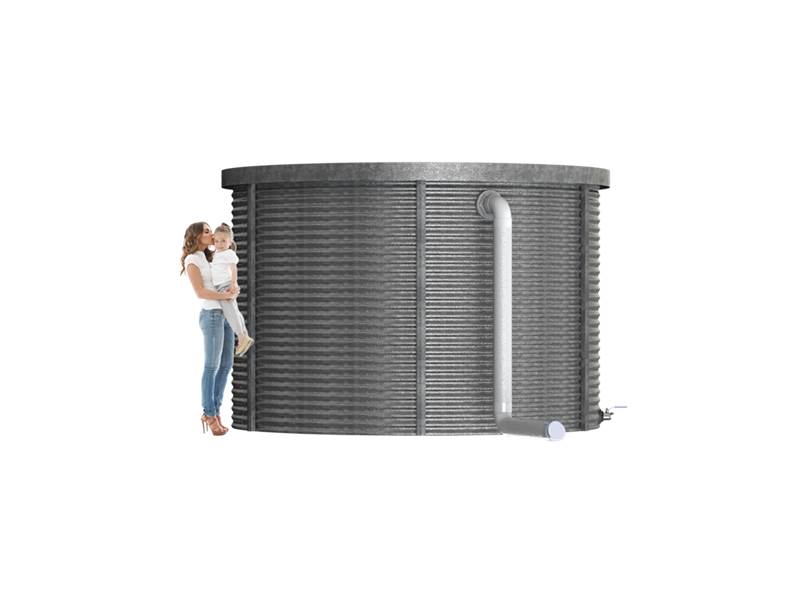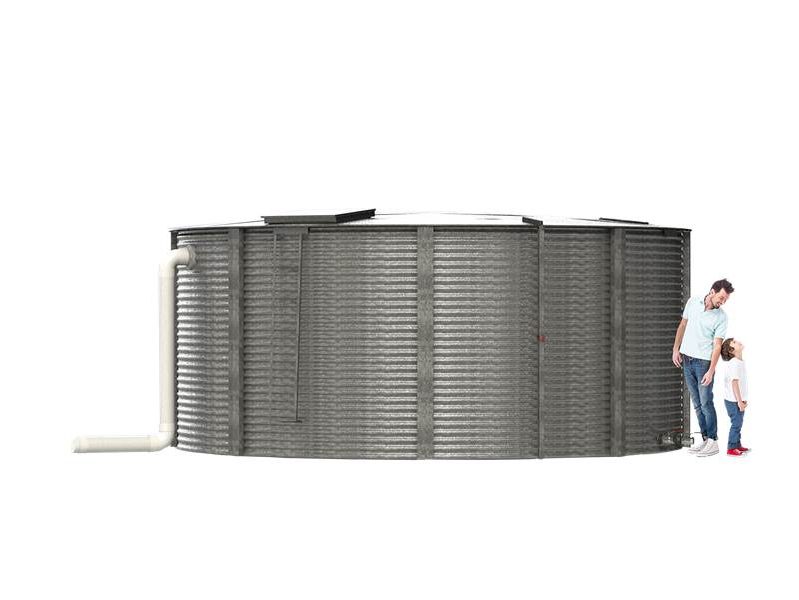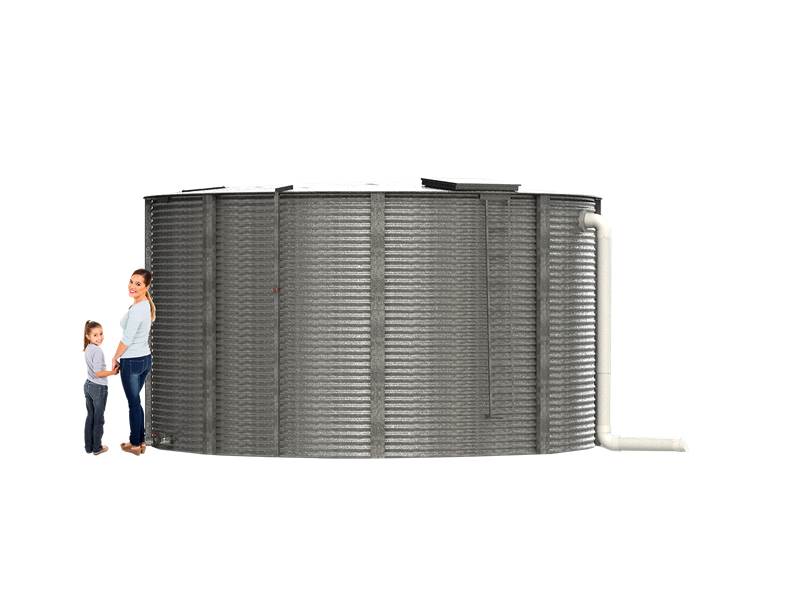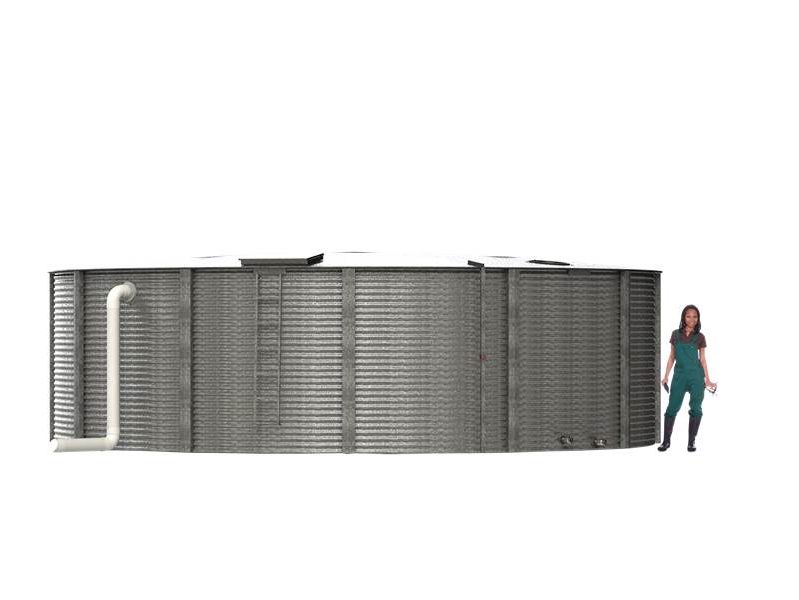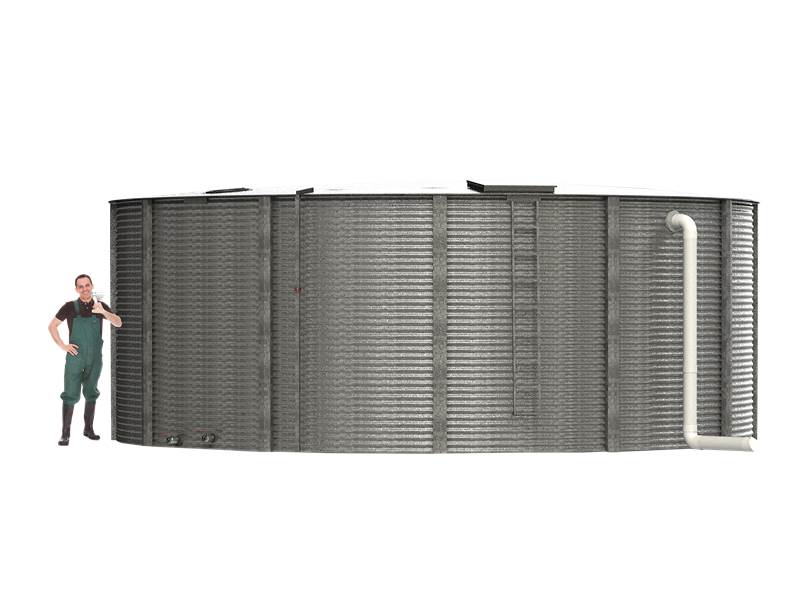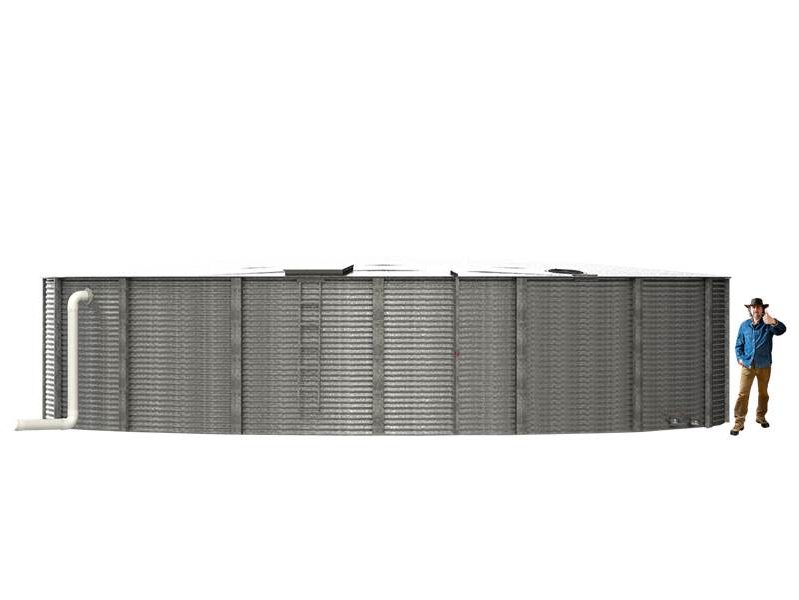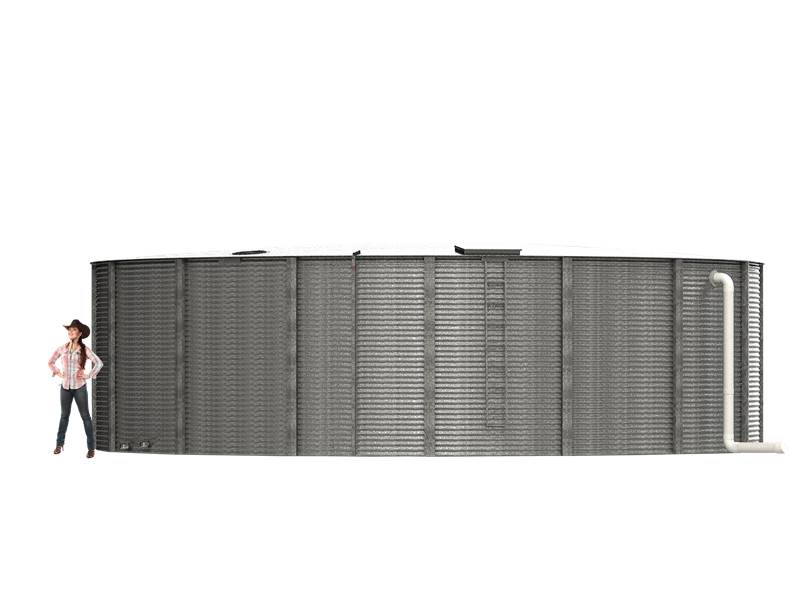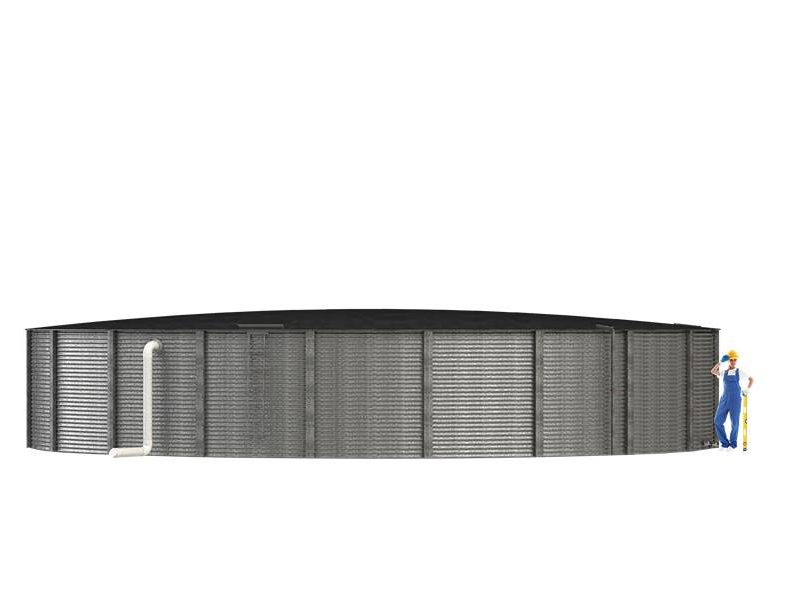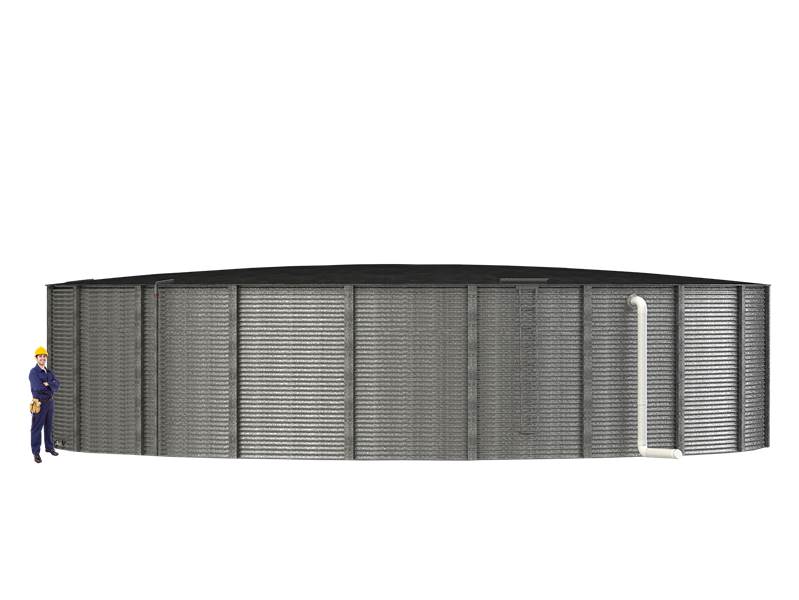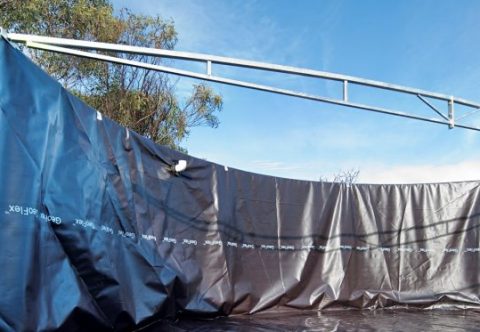Rainwater Collection Tanks
5,000 to 102,000 Gallons
20 Year “No Service Costs” Warranty
Our unique combination of heavy duty galvanized corrugated steel wall panels and a flexible polyethylene tank liner allows Aquamate to offer a premium rainwater collection tank at a very competitive price.
Aquamate Rainwater Storage Tanks, range from 5,000 gallons to 102,000 gallons.
All Aquamate rainwater harvesting tanks are installed by Aquamate trained and certified technicians, meaning you can be sure that your rainwater tank will stand the test of time.
Our large water tanks are available in nine standard sizes, from 130″ to 512″ diameter, giving you a range of sizes and volumes to suit your home, business, ranch or farm’s requirements.
Range of Rainwater Collection Tanks
Benefits of Aquamate Rainwater Collection Tanks

Galvanized steel rather than Zincalume steel
Lightweight steel panels and heavy duty galvanizing make Aquamate’s rainwater collection tank shells perfectly suited for water storage. Aquamate’s tank panels are covered with a galvanized coating that’s 1.45 ounces per square foot (G145) – the thickest advertised coating on the market. By using lightweight thin-gauge steel panels, Aquamate’s rainwater collection tanks have all of the required strength to resist water, snow and seismic loads without the excess material cost. Aquamate’s tank walls are protected by a heavy G145 galvanized coating.
Unlike other tanks on the market that use G40 Zincalume tank walls, an Aquamate rainwater storage tank will never need servicing or hundreds of dollars spent extending the warranty every 5 years by replacing sacrificial anodes.
An Aquamate rainwater tank truly is a ‘set & forget’ investment.

Aquamate’s 20 Year “No Service Costs” Warranty
Aquamate’s ‘No Service Costs’ Pro-Rata Warranty leads the industry and is supported by over 30 years of experience choosing the correct materials to survive the toughest conditions. By purchasing a Rainwater Collection Tank from Aquamate, you will not need to remember to service your sacrificial anodes every 5 years. In fact, you won’t need to service your tank at all for a period of at least 20 years!
Aquamate’s Enviro Liner 6000 tank liner
An Aquamate Rainwater Collection Tank uses a BPA and Antimicrobial Pesticide free liner.
Aquamate’s Enviro Liner 6000 tank liner is approved for the storage of potable water use and certified to ‘NSF/ANSI 61:Drinking Water System Components – Health Effects.
Aquamate’s solid Polyethylene tank liner is incredibly flexible which is an important characteristic needed for a durable water tank liner.
Capture water from the tank’s roof
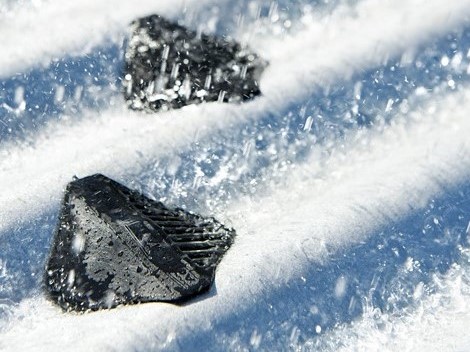
Aquamate’s rainwater collection tanks can be fitted with our innovative “Rainsaver” gutter system, utilizing the tank’s roof to increase the catchment area for optimal collection of rainwater which is then redirected into the tank. The domed roof on an Aquamate tank has dozens of channels around the perimeter of the roof that run from one side of the cistern to the other. Rainsavers are placed at the end of each channel to collect the water during rainfall events. If the tank is full, the water diverts to the overflow as it normally would.
What are the important considerations when harvesting rainwater?
No matter what your intended use is, you’ll need a rainwater collection tank to store the rainwater you’ve collected. What you plan on doing with the water after it’s stored will influence your needs. For simple irrigation systems, all you may need is a pre-filter, first flush diverter, and a small pump. For more complex drinking water systems, you may need to consider pumps, pipework, filtration and sterilization systems.
Rainwater harvesting professionals, like those certified by the American Rainwater Catchment Systems Association, are a great way of ensuring that you have the correct parts, your rainwater harvesting system is properly designed, uses good quality products and is installed in a safe and professional manner.
Other rainwater harvesting information
State and county authorities are a great independent resource when it comes to researching the requirements for rainwater harvesting in your area.
In Texas, the Texas Water Development Board (twdb.texas.gov) has published the Texas Manual on Rainwater Harvesting to assist system owners about the products, consideration, and guidelines associated with rainwater collection and re-use.
In California, documents like the City of San Diego Rainwater Harvesting Guide are a great starting point when beginning your rainwater collection and re-use journey.
14 reasons to choose an Aquamate Rainwater Collection Tank
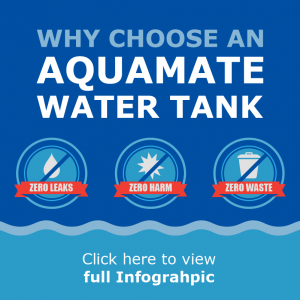

NSF/ANSI 61: Drinking Water System Components-Health Effects
All Aquamate Galvanized Water Tanks are NSF/ANSI 61: Drinking Water System Components-Health Effects compliant. If you manufacture, sell or distribute water treatment or distribution products in North America, your products are required to comply with NSF/ANSI 61: Drinking Water System Components – Health Effects by most governmental agencies that regulate drinking water supplies.
Contact us using the form below and we can help you with any of the questions about rainwater harvesting that you might have.
Inquiry Form
Is Rainwater Collection legal?
Collecting precipitation from your gutters or tank roof, also known as rainwater harvesting, can be a convenient and economical way to gather and conserve water. But have you ever stopped to ask yourself, Is it legal to collect rainwater? If you live in Texas, you might be surprised by the answer.
The answer is yes. And not only is it legal, but purchasing the equipment for rainwater collection is tax free!
Texas lets people buy rain harvesting equipment free of sales tax, and it’s against the law for homeowners’ associations there to prohibit rainwater collection. A few states in the western U.S. have traditionally outlawed rain harvesting altogether. The reasoning is that rainwater eventually makes its way into streams, rivers, and other water sources to which various individuals possess legal claims. In many cases, those claims go back generations.
Rainwater Harvesting down the ages
Rainwater collection is the process of collecting rainwater through a harvesting or collection system, which can involve barrels, buckets, or other containers to hold the water, such as our large galvanized water tanks.
Dating back to ancient Rome, the idea of collecting rainwater began when wealthier households were designed with atriums that had shallow pools built into the floor. The pools were meant to collect rainwater to help fill the city’s water supply. Since then, there have been many adaptations on how to harvest rainwater all over the world.
In the United States, rainwater is usually harvested from building roofs and stored in tanks designed for holding all the water. You will usually find rainwater harvesting in states that don’t receive a lot of rainfall annually or that are in a state of drought. Having a rainwater harvesting system in place helps to supplement the water use throughout the dryer seasons of the year.
Collecting and Storing Rainwater Pays off
Collecting rainwater can help conserve resources and can keep costs down. There are many benefits to consider when catching rainwater.
- Reduces stormwater runoff
- Uses simple and inexpensive ways to conserve water
- Good to use for gardening or watering lawn
- Less costs on resources
- Backup source for water emergencies
- Increase the value of your property with Large Water collection and Storage Tanks
- Harvesting rainwater has many benefits for homeowners and communities. It’s more eco-friendly and can help the planet.
Before you start collecting rainwater, contact your state government to find out what restrictions, if any, you face. Most likely, you’ll be good to go right away. Once you start using a rainwater collection tank, you’re definitely going to be happy with your investment as rainwater is soft and generally free of salt and toxins, and remains in perfect condition, the way nature intended with our BPA and pesticide Free liner.
If you have any questions about the amount of rainfall you can expect, here are some helpful sites for California, Texas or Arizona.
If you would like a quote or simply want further information regarding rainwater collection, please don’t hesitate to ask.
Aquamate has been manufacturing rainwater collection tanks since 1986. We engineer rainwater tanks from 5,000 to 102,000 gallons. Our rainwater collection tanks are engineered in a state of the art facility. For our rainwater collection tanks, we use a galvanized tank shell, rather than a Zincalume shell, which means no sacrificial anodes. Our galvanized water tanks have three main applications. They are used as rainwater collection tanks, fire tanks, and well water storage tanks. A steel water tank from Aquamate has a 20 year “No Service Costs” Warranty.

